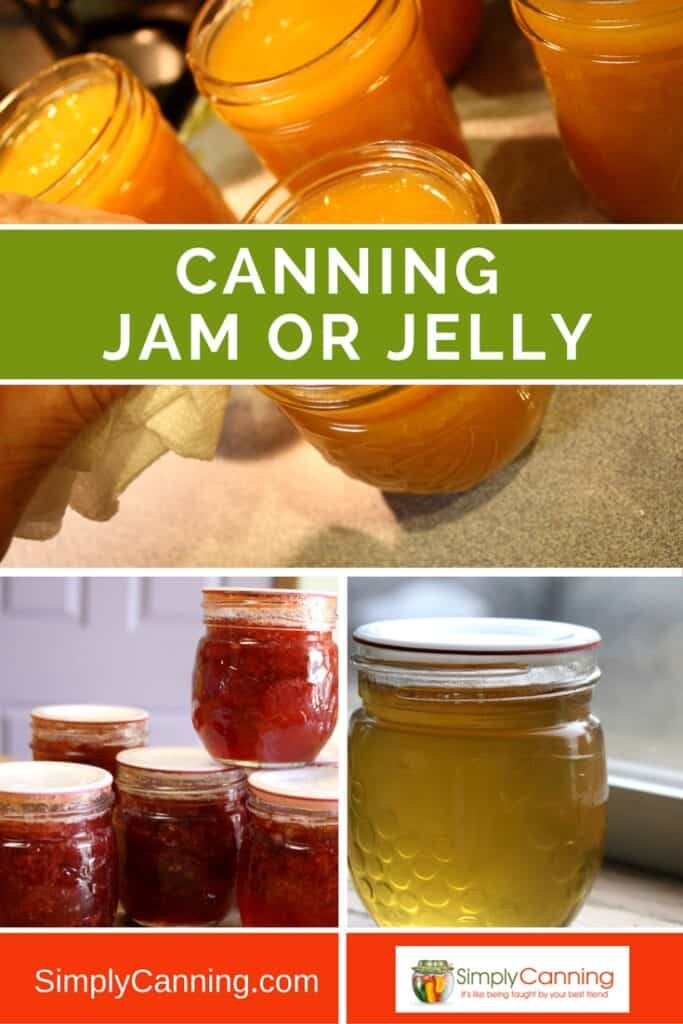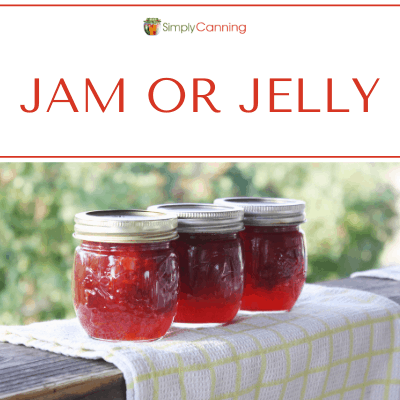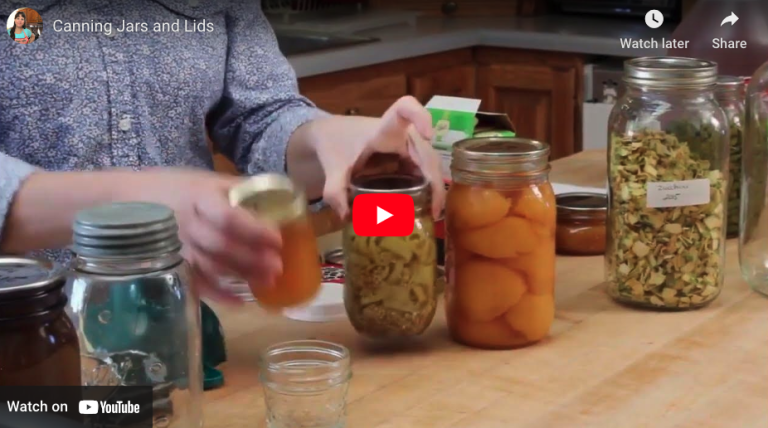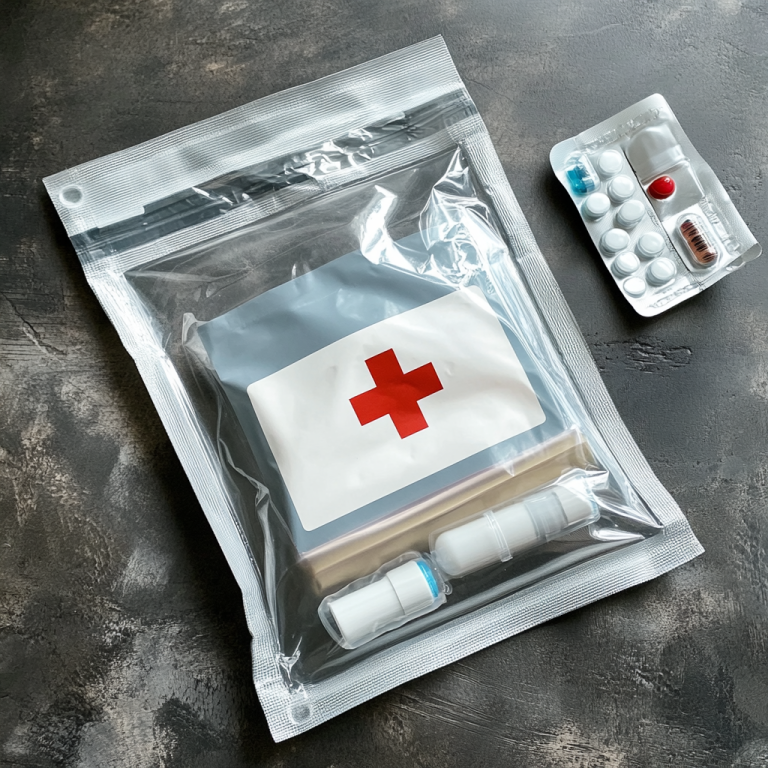Jam or jelly, marmalade, and fruit butter and spreads: This is where you learn how to can the sweet stuff!
Sweet spreads made with fruit are acid foods and can be safely water bath canned.
Most jam or jelly recipes make a small batch, and you may be tempted to double your recipe. However, it’s difficult to make double batches. If you want to make more at a time, have two batches going at the same time in separate pots. This way you keep the ingredients to 1 batch each pot but can make more at a time. Both batches may be processed together, just not cooked together.
Jams Jellies and Preserves Recipes
Canning Jam
This Apricot Jam recipe yields about 5 pints. If you want to do more at a time, make two single batches in two pots. Jam recipes don’t double easily.
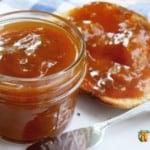
This sweet cherry jam recipe makes about 6 half-pints. It is VERY tempting to double the recipe. However, it is difficult to make double batches. If you want to make more at a time (I don’t blame you), simply have two batches going at the same time in different pots.
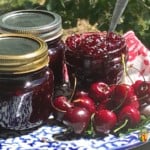
I had an excess of rhubarb so I went in search of some new ways to use it up. Orange Rhubarb Jam? Never heard of it. Let’s try it!
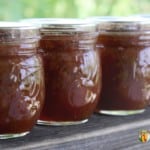
Easy spiced peach jam recipe. Adding a hint of cinnamon and cloves gives this peach jam a spicy warm flavor. Leave out the spices for a standard peach jam or add almond extract for an almond jam. All are equally delicious.
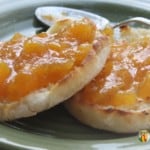
This is a very simple recipe for strawberry jam without commercial pectin!
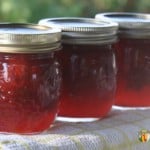
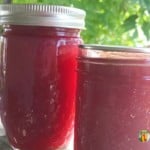
This strawberry rhubarb jam recipe is made with equal parts of Strawberry and Rhubarb. My favorite combination!
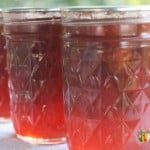
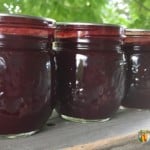
Peach Nectarine Plum Jam, otherwise known at Stone Fruit Jam. A great way to use up fruit before it goes bad!
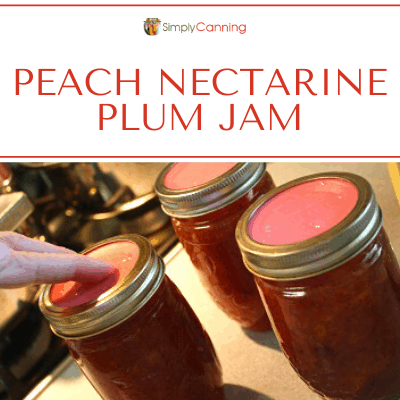
Jelly Recipes
Step-by-step instructions for making and canning chokecherry jelly. The texture of this is more like chokecherry jam though. ?
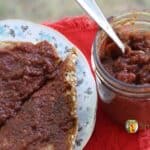
Learn how to make crabapple jelly and make use of those tart little fruits, while enjoying a delicious finished product.
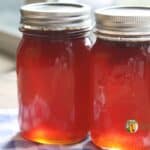
Dandelion jelly is made with the flowers of the plant. This bright and flavorful jelly will make you look forward to seeing those ‘weeds’!
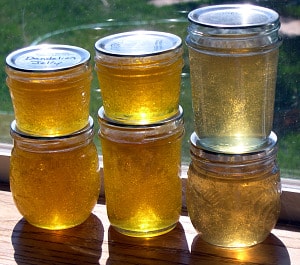
Corn cob jelly isn’t often heard of and can get various reactions. Until you try it, you don’t know what you’re missing!
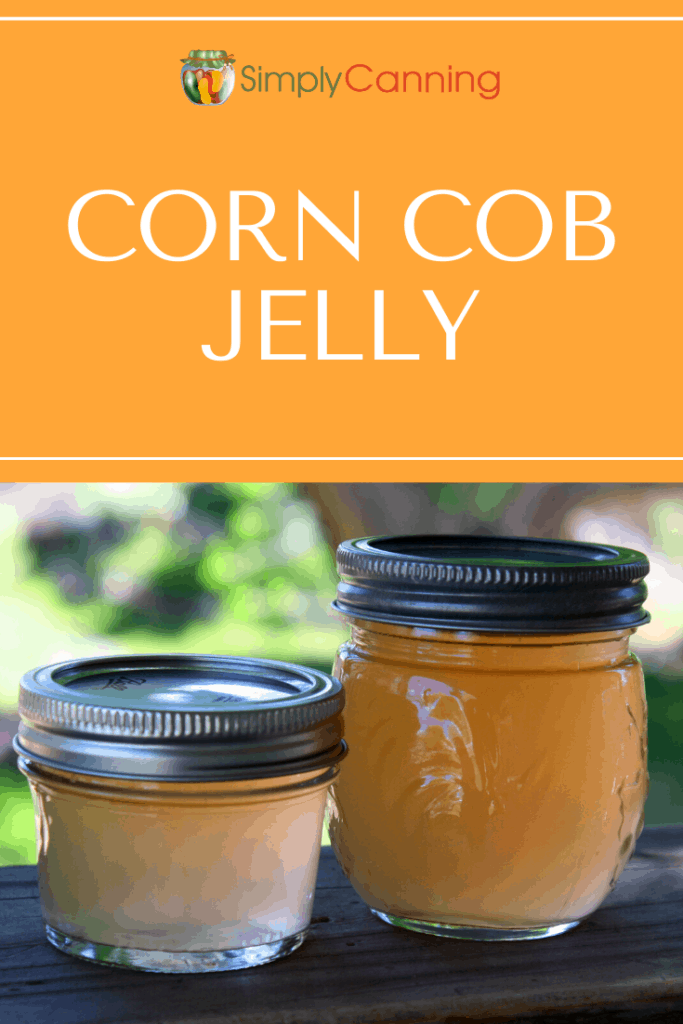
Other sweet Spreads
This orange marmalade recipe is started the day before you will be canning it. Chopped oranges need to soak for 12 – 18 hours, so I start it in the evening
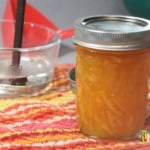
Use fresh plums to make this sweet plum sauce recipe for chicken.
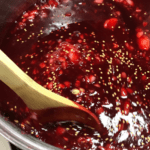
Instructions for making apple butter in a Crockpot and then how to can it!
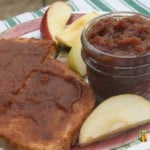
Peach butter recipe for slow cooker, with canning recipe. A bit of orange and nutmeg in this pear butter recipe makes it delicious.
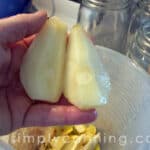
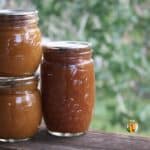
Other Tutorials You Might Need or Want
Low sugar jam recipe? You should be aware of this one pitfall of sugar-free jam. Learn about storing and what to look for. SimplyCanning.com
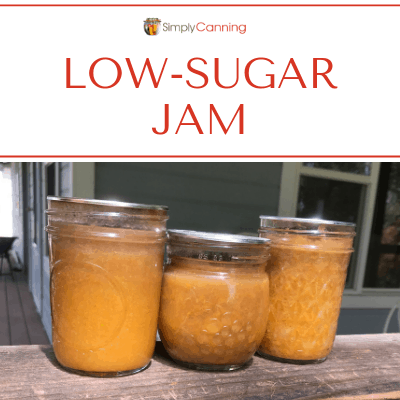
Jam and Jelly makers exist! If you aren’t confident with your skills, this may be the perfect option for you. SimplyCanning.com decided to test one out. What are the pros and cons? Click to read more!
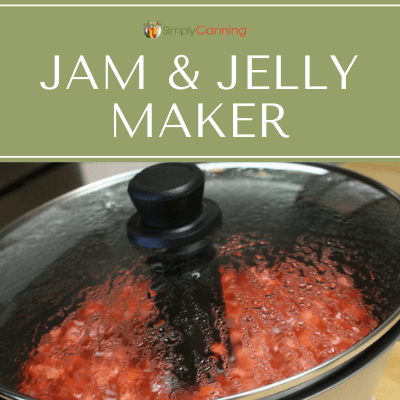
Making jam without any added pectin works great for some fruit. They have natural pectin in the fruit. Easy tutorial with low sugar options.
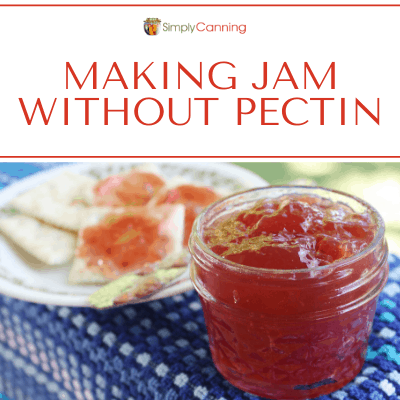
Pamona’s Pectin is for those who want to cut sugar in their canning! Designed to work with very low amounts of sweetener, this is perfect for making jams and jellies. Learn more at SimplyCanning.com
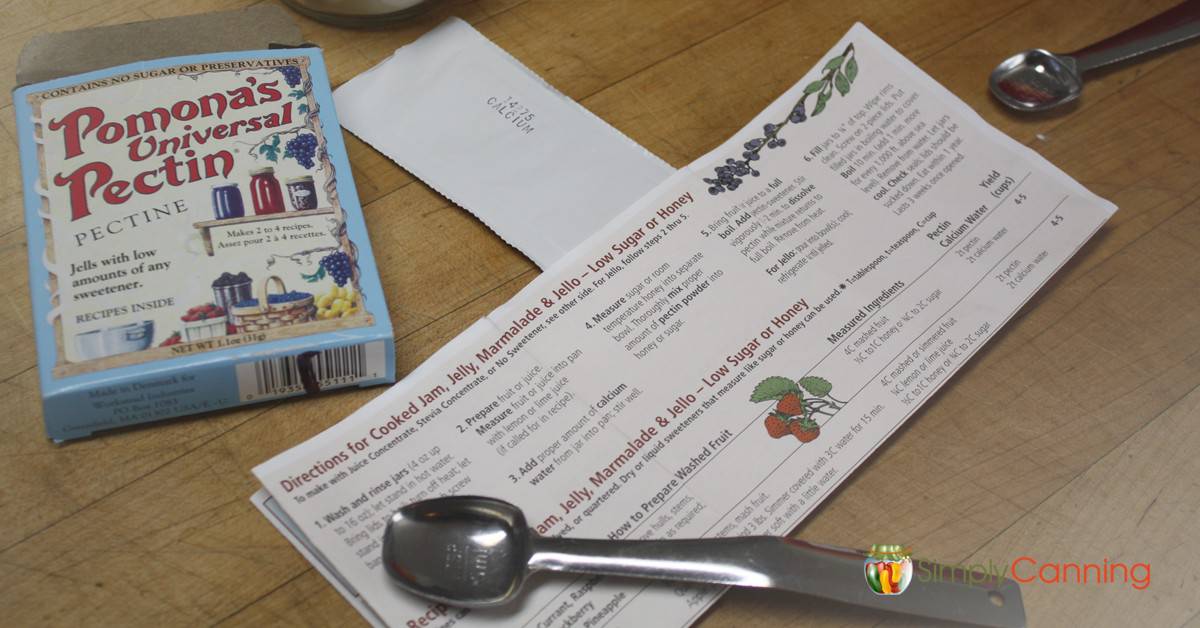
Water bath canning, step-by-step beginner-friendly tutorial. Printable checklist to help you learn. It doesn’t have to be hard or confusing.
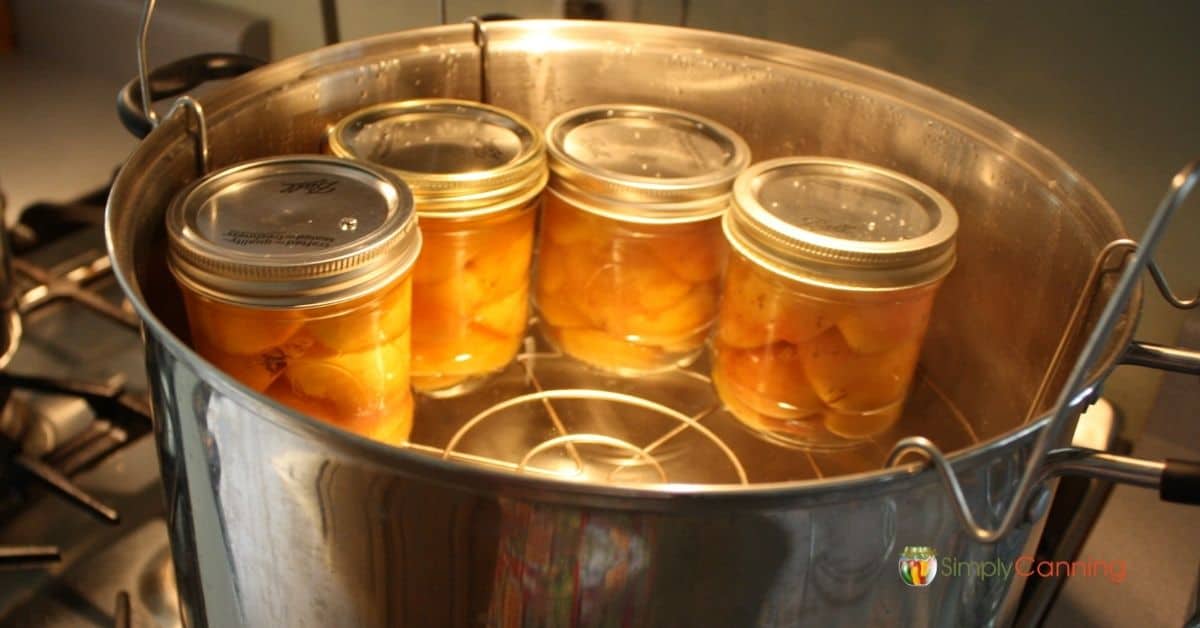
How to use a Steam canner. benefits: less water, less time, and has been proven to be safe when the directions are properly followed.
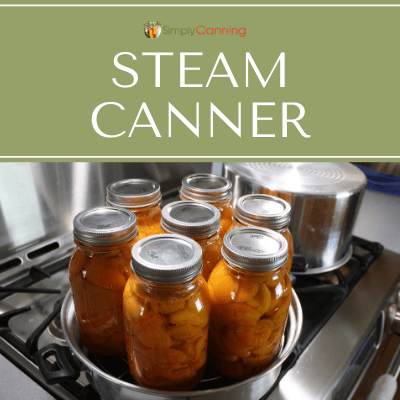
What is the Difference?
Jam vs Jelly vs Preserves vs Marmalade vs Fruit Butter…
It can be a bit confusing to preservers to figure out the differences between jam, jelly, preserves, marmalade, fruit butter, and other sweet fruit spreads.
Jam
Jam is a classic favorite, loved for its vibrant flavor and texture. It’s made from crushed or pureed fruit, cooked with sugar and often pectin, a natural gelling agent. What sets jam apart is that it includes fruit pulp and is generally thicker than jelly, making it ideal for spreading on bread or using as a filling for pastries
Jelly
Jelly is made from fruit juice that’s been strained to remove solids, leaving behind a clear and smooth consistency. Jelly tends to be firm and easily spreadable, making it a popular choice for sandwiches and toast. Its transparency showcases the vibrant color of the fruit juice used. The clearer you can make it the better a jelly maker you are!
Preserves
In preserves, whole pieces of fruit are suspended in a thick, syrup mixture. This spread is perfect for those who love lots of chunky fruit.
Marmalade
Marmalade, uses citrus fruits like oranges and lemons or grapefruit. It includes both the juice, pulp, and the zest or peel of the fruit. Including the thinly sliced rind in the finished product results in a tangy and slightly bitter flavor profile.
Fruit Butter
Fruit butter is a slow-cooked blend of fruit, sugar, and spices, simmered until it reaches a smooth, buttery consistency. It doesn’t contain actual butter but gets its name from the creamy texture. Fruit butter is excellent when you want a spread with a richer, spiced flavor. Apple, Peach, Pear, Apricot butter are common varieties.
Chutney:
Chutneys are savory-sweet condiments made from a variety of fruits, vegetables, and spices. Often including raisins, they add a flavorful kick to dishes, especially with cheese or meat.
The differences between jam, jelly, preserves, marmalade, fruit butter, and other sweet spreads depends on your personal taste and how you plan to use them. Whether you’re looking for a smooth and clear texture (like jelly), a lot fruit (as in preserves), or a tangy, citrusy kick (marmalade), there’s a sweet spread for every possible need.
Frequently Asked Questions
Small air pockets are normal. As long as it is not excessive, the bubbles are not moving (like fermenting), and you are sure you used the correct processing methods and time, there is no problem.
As soon as it cools and sets up it is ready to eat. Actually as soon as it cools even if it is not set up you can go ahead and use it. Occasionally it will take a week or so to set up.
If you have kept it in the fridge overnight, then yes, it is okay. Often I prepare something one day and reheat it and process it the next day. Be sure you reheat it before you jar it. You can’t jar it one day and then try to process the jars the next. Your jars won’t be hot when they go in the canner and you risk them breaking because of the temperature change
You can try to double jam recipes however you risk the jam not setting up properly. The best way around this is to have 2 batches going in different pots at the same time. They can then all be processed at the same time.
In my opinion yes, jam is easier to make than jelly. But others may disagree. I find it hard to get that clean clearness that ‘good’ jelly is supposed to have. Jams use the whole fruit and the texture can be as you like it. My preference is jam… but I’m sure don’t turn my nose up at jelly either!
Pin this to find later!
